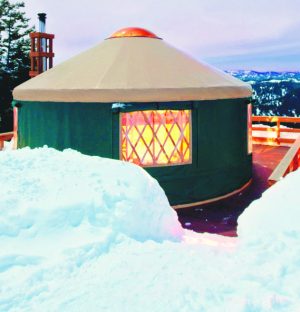![Star-CT1 (PFI 1.3) [P] Swix](http://skitrax.com/wp-content/uploads/2011/01/RC110_Star_ct_1_comp-s.2-200x259.jpg)
Star-CT1 (PFI 1.3) © Swix
January 29, 2011 – Ski poles are perhaps the most overlooked aspect of a cross-country ski racer’s equipment. People comment on their ski’s or boot’s weight but too often disregard the extra grams on their ski pole choice. But, while your skis and boots glide across the snow over the majority of a race course, your poles only go forward if you are lifting, swinging or carrying them. For many people their technique is hindered by their ability to quickly start their next pole plant.
The most important pole shaft properties are weight, swing weight, stiffness, and strength. While overall weight is exactly what it says, swing weight refers to the pendulum motion of each pole stroke and how more weight near the pole tip requires more energy from the skier. The stiffer the pole the more of your energy goes into forward movement and the less into bending the pole. Strength refers to the durability of the pole. Of all these properties overall weight is the most important and easiest to compare. Skiers average around 40 pole plants per minute. If you and a friend plan on skiing a 3.5-hour marathon and your friend uses Triac’s and you have CT4’s, you are lifting an additional 3 oz. per stroke. If in each stroke you move your pole 5 feet you will be moving an additional 7777 ft-lbs during the race! This is equivalent to curling 1 gallon of milk in both hands over 450 times. Will you still beat your friend?
![Swix Performance Index (PFI) [P] Swix](http://skitrax.com/wp-content/uploads/2011/01/pfi.2-298x248.jpg)
Swix Performance Index (PFI) © Swix
Swix Performance Index (PFI)
To help skiers understand the subtle differences in the Swix pole line we offer the Swix Performance Index a theoretical matrix comparing weight, pendulum, stiffness, strength and of Swix poles. The Triax 1.0 has a PFI of 1.0 the best rating, while the Comp has PFI of 2.5.
100% Carbon Fiber Shafts
Most advanced materials and construction for highest performance.
![Triac 1.0 (PFI 1.0) [P] Swix](http://skitrax.com/wp-content/uploads/2011/01/Triac-s.22.jpg)
Triac 1.0 (PFI 1.0) © Swix
Triac 1.0 (PFI 1.0) Weight 59 g/m, Stiffness 29mm deflection, Break Strength 70kp, 100% UHM/HM carbon fiber. An all new concept in pole design and construction. Ultra High Modulus/High Modulus (UHM/HM) carbon fiber in triangular layup. Stiffer, stronger and lighter than any Nordic pole ever. The shaft’s triangular shaped virtually eliminates all deflection, even in tallest sizes. Also light weight glueless interchangeable basket system.
![Star-CT1 (PFI 1.3) [P] Swix](http://skitrax.com/wp-content/uploads/2011/01/RC110_Star_ct_1_comp-s.22.jpg)
Star-CT1 (PFI 1.3) © Swix
Star-CT1 (PFI 1.3) Weight 64 g/m, Stiffness 31mm, Strength 63kp, 00% UHM/HM carbon fiber. The shaft has very high overall stiffness and is extremely light overall and in swing weight. Deflection at hard intensity skiing is minor at almost any pole length.
![CT2 Team (PFI 1.6) [P] Swix](http://skitrax.com/wp-content/uploads/2011/01/RC120_Team_ct_2_comp-s.22.jpg)
CT2 Team (PFI 1.6) © Swix
CT2 Team (PFI 1.6) Weight 67 g/m, Stiffness 41.5mm, Strength 72kp 100% HighStrength/HM (HS/HM) carbon fiber. The Team shaft is slightly heavier and less stiff then the Star with similar swing weight but superior strength from resistance to impact from skis edges than the Star.
100% Carbon Fiber + Fiberglass Shafts
By replacing some of carbon fiber with fiberglass the impact strength (durability) increases and price drops. Stiffness also declines and both overall and swing weight increase dramatically.
![Carbon CT3 (PFI 1.9) [P] Swix](http://skitrax.com/wp-content/uploads/2011/01/RC130_Carbon_ct_3_comp-s.22.jpg)
Carbon CT3 (PFI 1.9) © Swix
Carbon CT3 (PFI 1.9) – Weight 79 g/m, Stiffness 39mm, Strength 72kp, 80% HS carbon fiber. The shaft has medium to high overall stiffness. Some deflection at hard intensity skiing and in taller lengths. Weight, pendulum and stiffness not as good as Team but equal in strength.
![Cross CT4 (PFI 2.5) [P] Swix](http://skitrax.com/wp-content/uploads/2011/01/RC140_Cross_ct_4_comp-s.22.jpg)
Cross CT4 (PFI 2.5) © Swix
Cross CT4 (PFI 2.5) Weight 89 g/m, Stiffness 45mm, Strength 70kp, 65% HS carbon fiber The shaft has medium stiffness and weight with great durability.
![Comp CT5 (PFI 2.8) [P] Swix](http://skitrax.com/wp-content/uploads/2011/01/RC150_Comp_ct_5_comp-s.22.jpg)
Comp CT5 (PFI 2.8) © Swix
Comp CT5 (PFI 2.8) Weight 99 g/m, Stiffness 45mm, Strength 70kp 50%HS carbon fiber The shaft has medium has similar stiffness to cross with higher weight.





![National camp action [P]...](https://skitrax.com/wp-content/uploads/2019/08/Duluth-4-2019-08-08-at-10.46.51-AM-300x246.png)
![Matt Liebsch on the CXC Elite Team [P] CXC...](https://skitrax.com/wp-content/uploads/2019/08/Matt-Liebsch-CXC.2-525x700.4-300x267.jpg)
![Dan LaBlanc [P]...](https://skitrax.com/wp-content/uploads/2019/08/Dan-LaBlanc-img_1855.3.jpg)

![Star-CT1 (PFI 1.3) [P] Swix](http://skitrax.com/wp-content/uploads/2011/01/RC110_Star_ct_1_comp-s.2-200x259.jpg)
![Swix Performance Index (PFI) [P] Swix](http://skitrax.com/wp-content/uploads/2011/01/pfi.2-298x248.jpg)
![Triac 1.0 (PFI 1.0) [P] Swix](http://skitrax.com/wp-content/uploads/2011/01/Triac-s.22.jpg)
![Star-CT1 (PFI 1.3) [P] Swix](http://skitrax.com/wp-content/uploads/2011/01/RC110_Star_ct_1_comp-s.22.jpg)
![CT2 Team (PFI 1.6) [P] Swix](http://skitrax.com/wp-content/uploads/2011/01/RC120_Team_ct_2_comp-s.22.jpg)
![Carbon CT3 (PFI 1.9) [P] Swix](http://skitrax.com/wp-content/uploads/2011/01/RC130_Carbon_ct_3_comp-s.22.jpg)
![Cross CT4 (PFI 2.5) [P] Swix](http://skitrax.com/wp-content/uploads/2011/01/RC140_Cross_ct_4_comp-s.22.jpg)
![Comp CT5 (PFI 2.8) [P] Swix](http://skitrax.com/wp-content/uploads/2011/01/RC150_Comp_ct_5_comp-s.22.jpg)